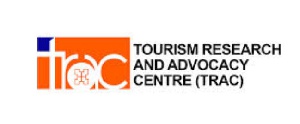A survey conducted by the Tourism Research and Advocacy Centre (TRAC) reveals that Ghana has over the past 30 years initiated many interventions aimed at empowering tourism to become a major vehicle for the country’s economic transformation.
Nonetheless, policy-related weaknesses and supply factors such as a defective policy regime,limited attraction offerings, poor supporting infrastructure, and a weak operating environment have culminated in stagnated growth in demand and thereby stifling performance of the sector.
These findings are contained in a detailed report produced by the Tourism Research and Advocacy Centre in relation to the state of Ghana's tourism sector.
The report shows that Ghana has had mixed fortunes from tourism. Even though the sector is grappling with supply factors, macro-economic indicators on the other hand have shown promise of a vibrant sector contributing enormously to the country;s GDP.
The report provides a general overview of the performance of the sector over the period in question by capturing and analyzing the performance of the tourism sector over the last few decades, precisely, since 1985.
The trends are reported along the demand and supply perspectives. Also, the report examines the performance of tourism along certain economic indicators. The study then looks at the future trends and discusses some problems facing Ghana’s tourism.
According to the report, Ghana’s tourism sector on the whole is in a relatively weakened (in terms of arrivals and receipts) state as compared with the 1985-2001 era. Nevertheless, the prospects look bright and it is expected that inboundtourist patronage will grow by 5-10% over the 2017-18 period.
The benefits from such an expected increase are only likely to be realized if conscious efforts are made by government to address the pitfalls and challenges using strategies outlined in the latter sections of the report.
Business News of Wednesday, 21 February 2018
Source: asempanews.com

















